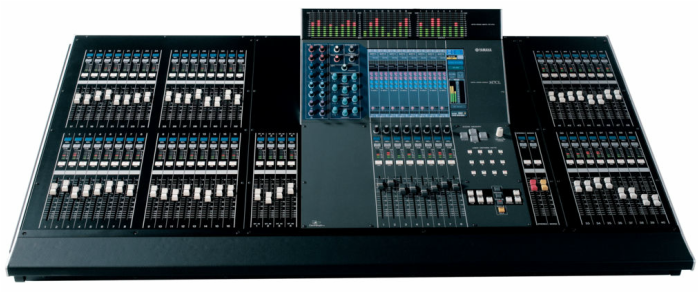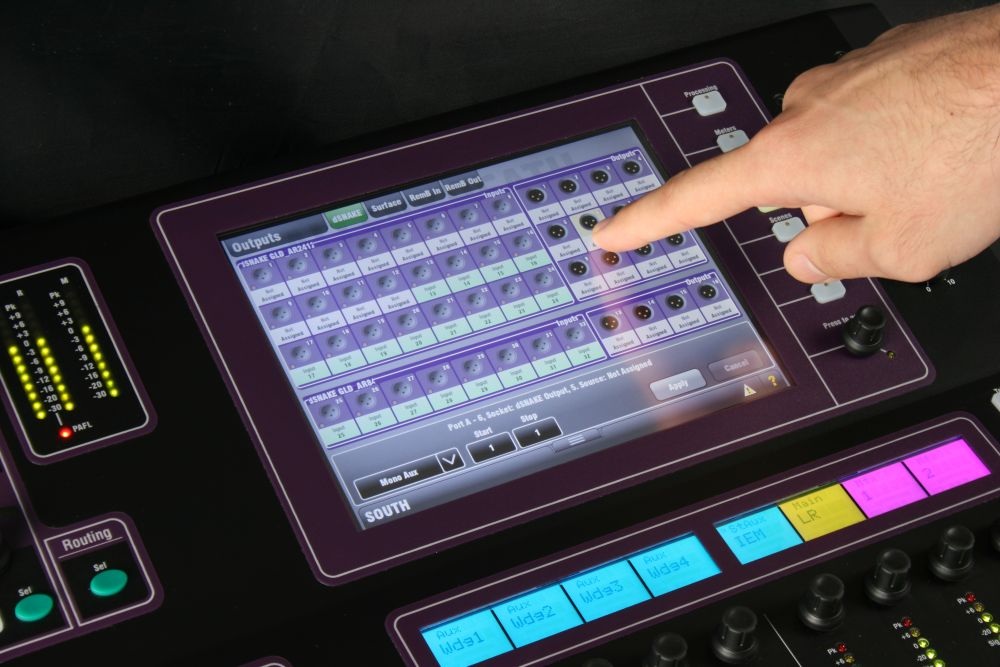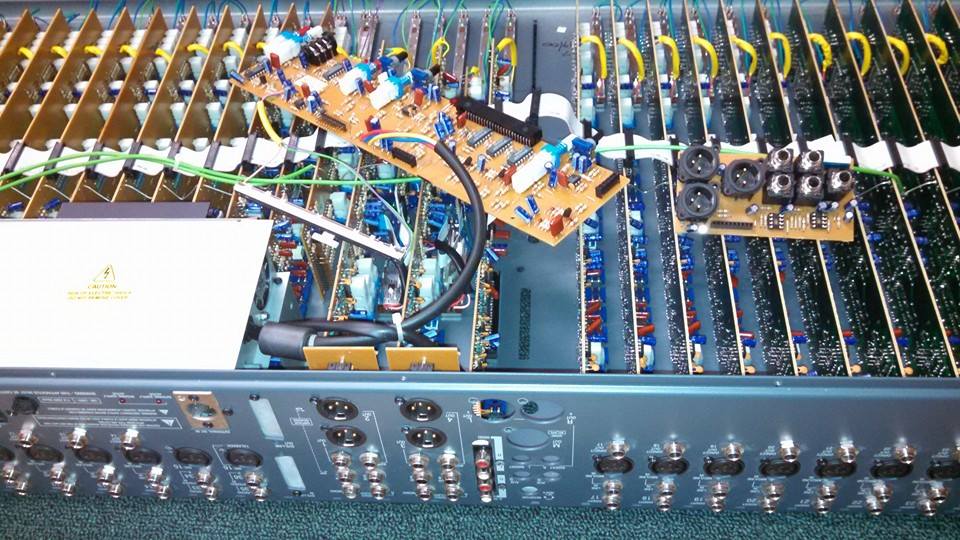|
Disclaimer: This is not about analog vs. digital. Don't read into what I am not saying. I love digital consoles, and I can run them with the best of them, but... I have been worried about a trend I have been seeing in the church audio tech community. Without finding out each congregation's needs and challenges, I have seen my colleagues blindly recommend purchasing a digital mixing console. Most churches in America average around 200 members or less. Worldwide, this number is allot smaller. Because of this, a majority of churches do not have a pool of technically proficient people to pull from that is wholly committed, and shows up on time. If this sounds like the type of church you attend, here are a list of reasons why you may want to remain with an analog console: 1. An analog console does not have anywhere near the learning curve a quality digital console has. For instance: I have a technically proficient friend that purchased a very simple inexpensive digital console a year ago, and is still trying to figure out all the ins & outs to it. On the other hand, I have personally taught countless volunteers how to run an analog mixing console in less than an hour. 2. If your engineer doesn't show up on a Sunday, will "Uncle Earl" know how to run a digital console? "Hey Uncle Earl, I need you to patch something in for me on this channel." Don't worry, we bought an easy to use digital console: 3. Are digital consoles extremely powerful? Yes. One of the perks of a digital console is the ability to patch in any effect or numerous effects on any channel. Most worship leaders of medium-sized churches would say this is not necessarily a positive thing when thinking about who's in the booth every Sunday. "Oh look a flanger! That would be cool on the worship leader's voice!" 4. When something goes wrong on a digital console: a. It is typically very difficult to find anyone local in most cities certified to repair a digital console...and not only a digital console, but your particular brand of console. b. You usually have to send it to another state to have it repaired. This is called DOWNTIME and it's not fun! I guess in that case, you'll just have to do without? c. This is a picture of an analog Allen & Heath GL Series mixing console I repaired recently. It took me one hour to repair 3 faulty channels (someone had dropped coffee on one channel, and something very heavy had dropped on 2 channel's faders). There was also an auxiliary master control in the master section of the console that was out. Take note: The console was still functional and useable even though these items were faulty. You see that nifty white flat thing running the length of the console in the middle of the picture? That's called a ribbon cable. You can take out a module for repair, and the whole console still functions. One of the faders had to be ordered (it was cheap). After I fixed most everything on it, we turned the console back over and prepared it for their service coming up that night. Once the fader came in a week later, I soldered it in-between services. They had ZERO downtime. BTW: This console was about 10 years old. It's not obsolete. Never needs a software update. It just works.
5. No Firmware, Software, or Drivers to download, update, or flash on an analog console. No software component to freakout mid-service. No Lockups. No hours on a phone with tech support. I am only bringing this up because I have seen numerous complaints about this type of behavior from affordable digital consoles. 6. Most churches in this country cannot afford a quality digital console. So, they'd have to purchase an affordable digital console. An affordable digital console may have allot of bells and whistles up front, but typically won't remain a solid mixing platform you can rely on in the long haul. If you gave me a choice between an X32 digital console (a budget conscious digital console) and a ZED analog console (budget conscious analog console), and told me it would have to be solid for the next 5 years, I'd much rather go with the ZED. The ZED is $600 cheaper to boot, and I know that it would be reliable. 7. But wait! What about recallable scenes to help someone use on Sunday? They probably wouldn't know how to access it anyway, and it takes more than just recalling a scene to mix an entire service. Furthermore, an analog console's "scenes" don't change. No scene to recall...it's already there from the previous Sunday. It's called real knobs, and it wouldn't take that long for someone to know how to use them. I want someone to be focused on mixing music and the message, rather than getting lost in technology. We are missing the main point when this occurs. In closing - I love digital consoles. I've been running them since they first came out, but I just don't think they are a right fit for most congregations.
9 Comments
Best of Both Worlds
2/23/2015 09:49:01 am
Sounds like the best solution is an A&H GL style analog console with motorized knobs, buttons, and faders for scene storage and recall only.
Reply
4/30/2015 01:29:49 am
Hmm...
Reply
4/30/2015 01:55:20 am
Actually, the Qu-32 is a great console! If you look in my buyer's guide, you'll see that I recommend it as a great priced and powerful digital console.
Reply
Greg Chudyk
4/30/2015 02:39:56 am
What??
Stephen Davis
4/30/2015 07:24:46 am
While I understand and respect your opinion, having used 2 different budget digital consoles (the Presounus (3+ years so far with no problems) and the X-32 (1.5 years with no problems)) I disagree on some points (using your point numbers)
Reply
4/30/2015 10:07:11 am
Touche! Ha! This post of mine has generated more discussion and flaming than any other I have written.
Reply
Stephen Davis
5/1/2015 04:53:00 am
Thank-you for your good response and I whole heartedly agree that before recommending a console the needs and challenges of the individual church needs to be looked at very carefully.
Joseph Johns
4/30/2015 10:15:01 am
I agree with the article, especially this sentence - which sums it up nicely: " Without finding out each congregation's needs and challenges, I have seen my colleagues blindly recommend purchasing a digital mixing console. Most churches in America average around 200 members or less. Worldwide, this number is allot smaller. Because of this, a majority of churches do not have a pool of technically proficient people to pull from that is wholly committed, and shows up on time."
Reply
Stephen Davis
5/1/2015 04:55:46 am
I am not sure how your X-32 is set up but it is very important for any digital console to be on a quality UPS as they are essentially a computer and do not like any variation in supplied voltage.
Reply
Your comment will be posted after it is approved.
Leave a Reply. |
Do you like vintage recording gear and articles? You should visit our sister site: The Vintage Audio Portal!
**Advertise With Us! We have thousands of visitors a day. Contact us here to learn more.
Archives
August 2021
Categories |



